
Punda: The Vibrant Heart of Willemstad
Punda is the lively and colorful heart of Willemstad, Curacao. Known for its iconic pastel-painted buildings, this historic neighborhood offers a unique blend of Dutch colonial architecture and Caribbean charm. As you explore its narrow streets, you'll be greeted by a kaleidoscope of colors and a vibrant atmosphere that is truly captivating. Punda boasts a rich history that dates back to the 17th century, and this is reflected in its well-preserved buildings and landmarks. A must-visit is the Queen Emma Bridge, a floating pontoon bridge that connects Punda to the neighboring district of Otrobanda. This pedestrian bridge is not only a testament to the engineering ingenuity of the past but also offers stunning views of the harbor and the city skyline. Shopping enthusiasts will find Punda a paradise, with its numerous boutiques, art galleries, and souvenir shops. The neighborhood is also home to the Mikvé Israel-Emanuel Synagogue, the oldest surviving synagogue in the Americas. For a taste of local culture, visit the floating market where vendors from Venezuela sell fresh produce right from their boats. Punda's culinary scene is diverse and delightful, offering everything from casual street food to fine dining. Be sure to try local dishes like Keshi Yena and Pastechi. As the sun sets, the neighborhood comes alive with music and nightlife, making it a perfect spot to experience the island's vibrant culture.
Local tips in Punda
- Visit the Queen Emma Bridge during the day for picturesque views and again at night when it is beautifully illuminated.
- Explore the floating market early in the morning to experience the freshest produce and the bustling atmosphere.
- Wear comfortable walking shoes as Punda's cobblestone streets can be uneven.
- Don't miss the opportunity to take a guided walking tour to learn more about Punda's rich history and hidden gems.
- Try to visit on a weekday as weekends can be crowded with both tourists and locals.
Iconic landmarks you can’t miss
Queen Emma Bridge
Discover the enchanting Queen Emma Bridge in Willemstad, a floating landmark that connects cultures and offers breathtaking views of Curaçao's vibrant waterfront.
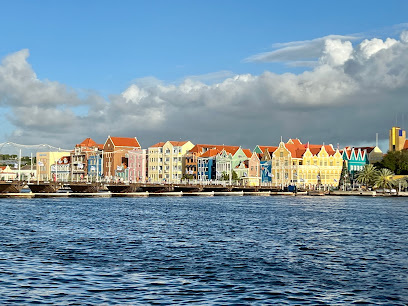
Punda Love Heart
Experience the charm of Punda Love Heart in Curaçao, a vibrant symbol of love nestled in a UNESCO World Heritage site.
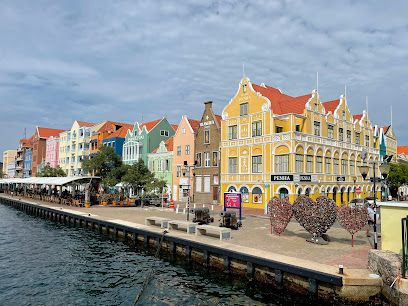
Dove Statue
Discover the Dove Statue in Willemstad, Curaçao – a serene symbol of peace surrounded by vibrant culture and stunning architecture.
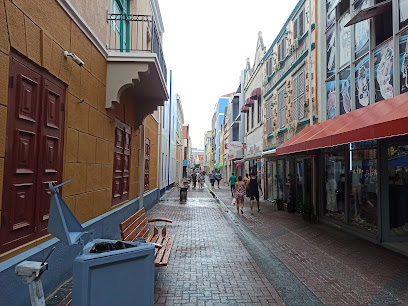
Curazao
Explore Curazao: A historical gem in the Caribbean, renowned for its colorful architecture, rich culture, and vibrant atmosphere that captivates every traveler.
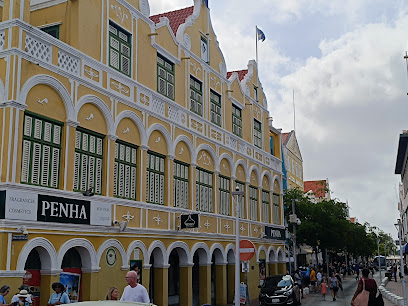
Statue of Thanks
Explore the Statue of Thanks in Willemstad, Curaçao - a historical landmark that celebrates gratitude and cultural heritage in a stunning Caribbean setting.
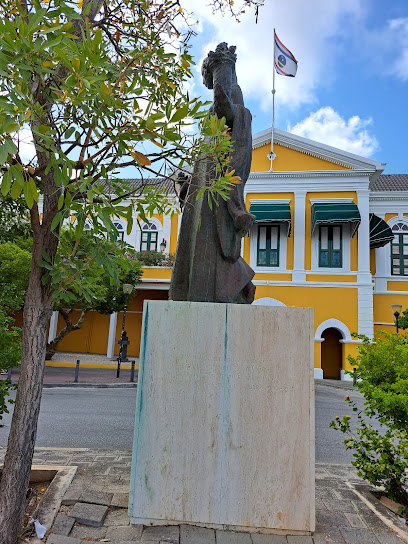
Statue Manuel Carlos Piar
Discover the Statue of Manuel Carlos Piar in Willemstad, a historical landmark honoring a local hero amidst the vibrant culture of Curaçao.
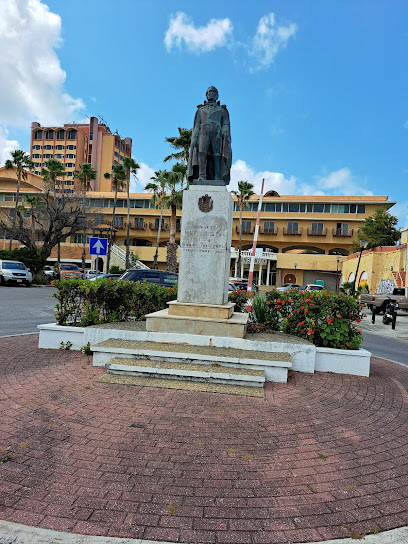
Keukenstraat
Discover the historical charm of Keukenstraat in Willemstad, Curaçao, a street rich in culture and architectural beauty.
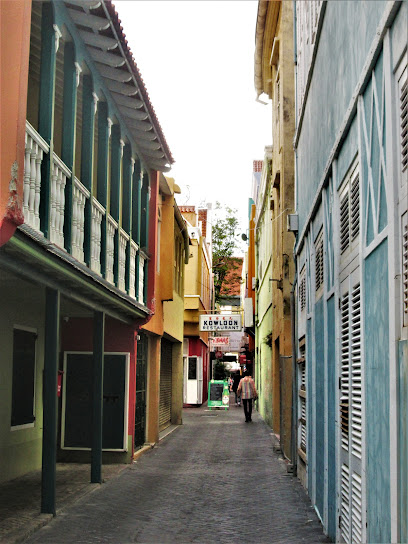
Wind Alley
Experience the vibrant culture and historic charm of Wind Alley in Willemstad, a must-visit landmark in beautiful Curaçao.
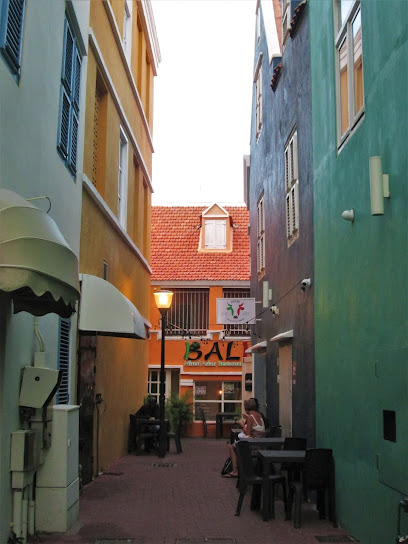
Rosa de viento Curaçao
Explore Rosa de Viento in Willemstad, Curaçao, a historical landmark reflecting the island's rich cultural heritage and architectural beauty.
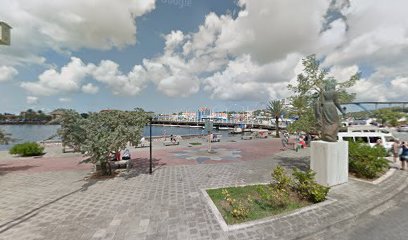
Old houses of Breedestraat
Experience the rich history and vibrant culture of Willemstad at the Old Houses of Breedestraat, a colorful journey through Curaçao's colonial past.
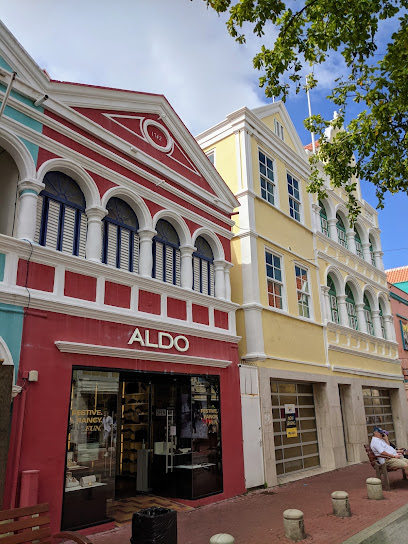
Unmissable attractions to see
Museum Kura Hulanda
Explore the poignant history of the transatlantic slave trade at the Kura Hulanda Museum in Curaçao, a powerful and moving experience set in a beautifully restored historic village.
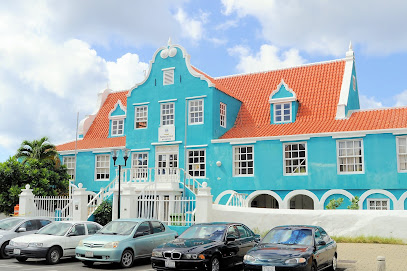
Curacao Maritime History Museum / A treasure chest full of history
Explore over 500 years of Curaçao's maritime history through fascinating exhibits, ship models, and harbor tours in a beautifully restored historic building in Willemstad.
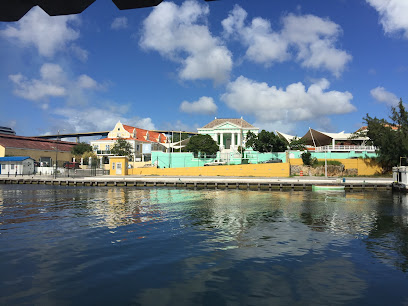
D.I.Y. Walking Experience
Explore Willemstad's colorful streets, historic landmarks, and vibrant culture on a self-guided walking tour, discovering hidden gems and local flavors in this UNESCO World Heritage city.
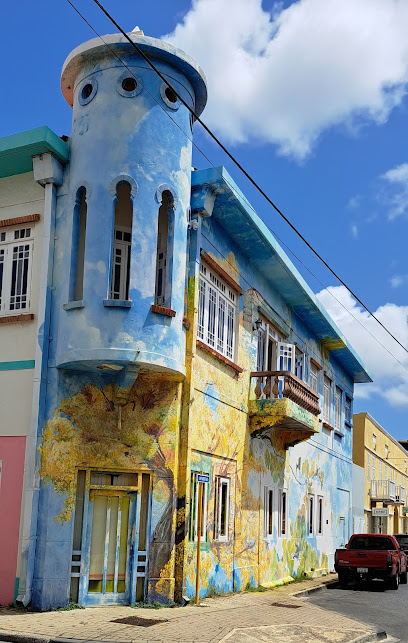
Sundial
Discover the timeless charm of the Sundial in Willemstad, Curaçao, a captivating landmark blending history, culture, and stunning visuals in the heart of the island's historic district.
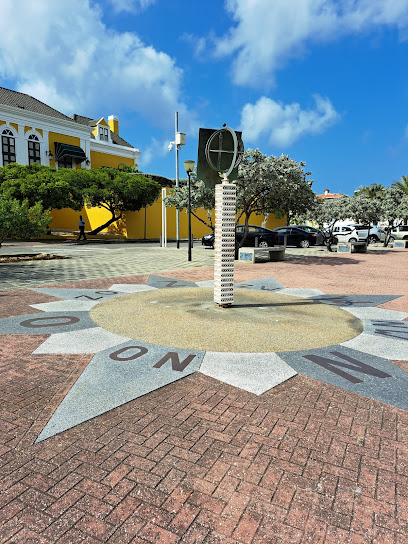
Essential places to dine
Iguana Café
Experience culinary delights at Iguana Café with stunning views of St. Anna's Bay in vibrant Willemstad.
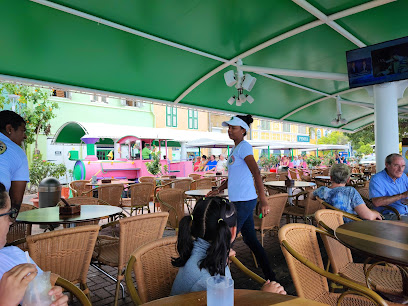
La Bohème Curaçao
Experience authentic Caribbean flavors at La Bohème Curaçao - your go-to spot for delicious breakfasts and brunches in Willemstad.
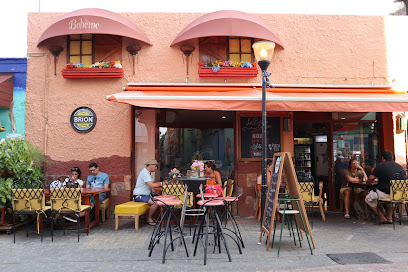
Plein Café Wilhelmina
Experience delightful dining at Plein Café Wilhelmina in Willemstad - where Caribbean flavors meet vibrant ambiance.
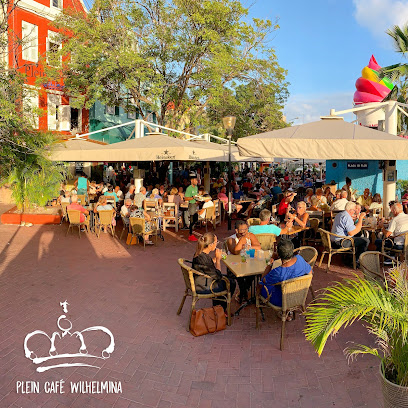
De Buren Curaçao
Experience the best of Caribbean cuisine at De Buren Curaçao - where local flavors meet international flair in a vibrant setting.
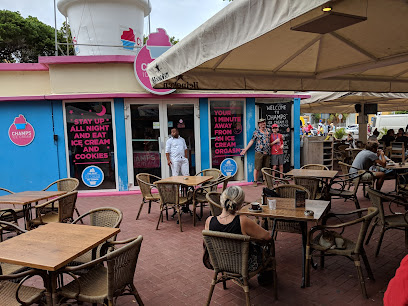
Dal Toro Restaurant
Experience authentic Italian cuisine at Dal Toro Restaurant in Willemstad, Curaçao – where traditional flavors meet Caribbean charm.
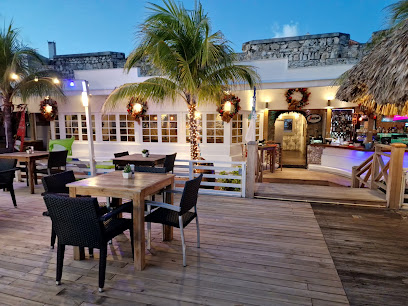
Perla Del Mar
Experience exquisite Caribbean cuisine at Perla Del Mar in Willemstad – where local flavors meet international flair in a vibrant setting.
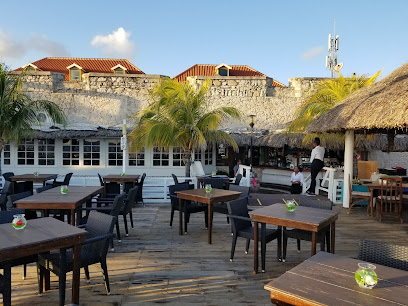
Scampi's Restaurant
Experience exquisite seafood and local flavors at Scampi's Restaurant in Willemstad - where culinary delights meet Caribbean charm.
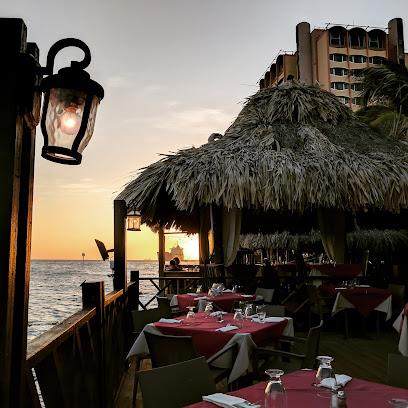
The City Curaçao
Experience exceptional Caribbean flavors at The City Curaçao – where every meal is a celebration by the waterfront.
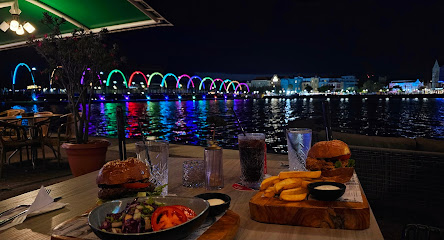
Santa Anna Curacao
Experience an exquisite blend of local flavors at Santa Anna Curacao in Willemstad – where every meal tells a story.
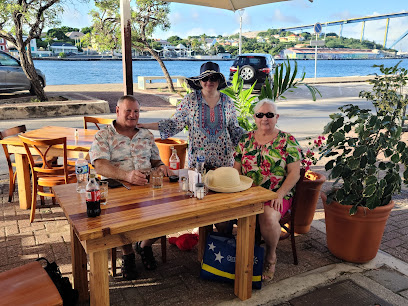
Blauwblauw curacao
Experience the vibrant flavors of Caribbean cuisine at Blauwblauw Curaçao in Punda's lively atmosphere.
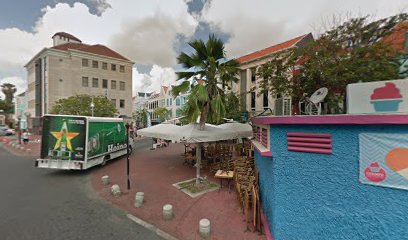
Markets, malls and hidden boutiques
Chichi Shop Punda
Discover the vibrant spirit of Curaçao at Chichi Shop Punda, your go-to destination for unique souvenirs and local crafts.
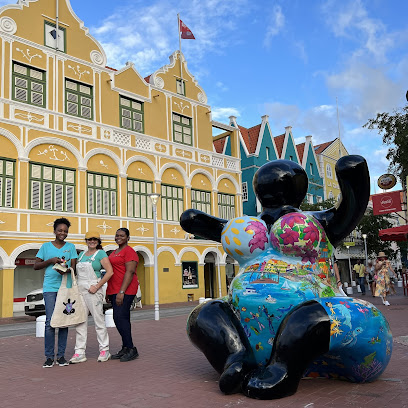
Island Treasures
Explore Island Treasures in Willemstad, Curaçao for unique souvenirs that reflect the vibrant culture and artistry of the island.
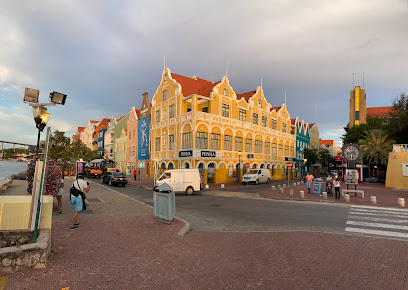
Memories Curacao
Explore the vibrant heart of Curacao with unique souvenirs at Memories Curacao, the perfect place to find authentic gifts from the island.
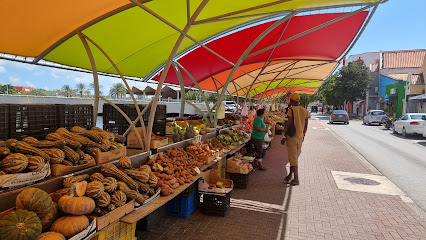
10$ SOUVENIRS
Explore the vibrant heart of Curaçao at 10$ Souvenirs, where local treasures meet unbeatable prices, perfect for every traveler.
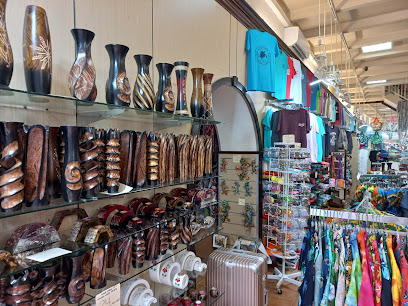
the goods bv
Explore The Goods BV, a charming gift shop in Willemstad offering unique local treasures that capture the spirit of Curaçao's vibrant culture.
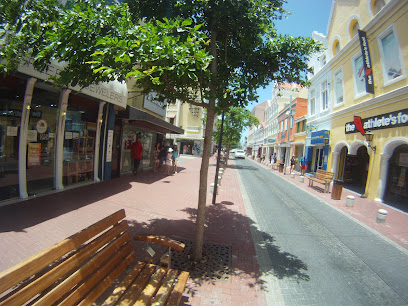
Curacao Surf N Skate Shop
Explore Curacao Surf N Skate Shop for unique souvenirs and beachwear that embody the island's vibrant surf and skate culture.
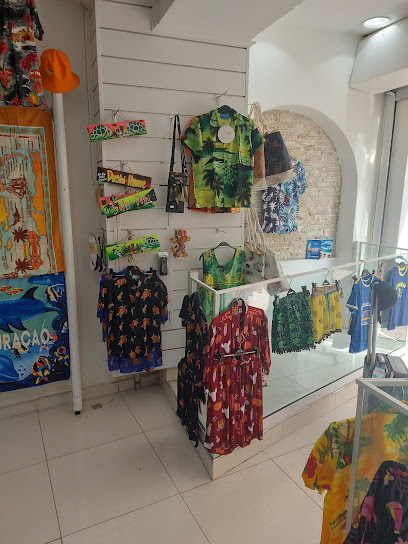
SilvanyRoss
Discover the essence of Curaçao at SilvanyRoss, your go-to gift shop for unique local crafts and souvenirs in Willemstad.
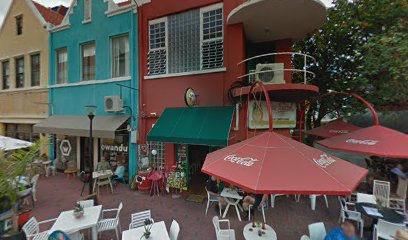
SHIPWRECK SOUVINERS
Discover unique nautical-themed treasures at Shipwreck Souvenirs in Punda, Willemstad, perfect for capturing memories of your Curaçao adventure.
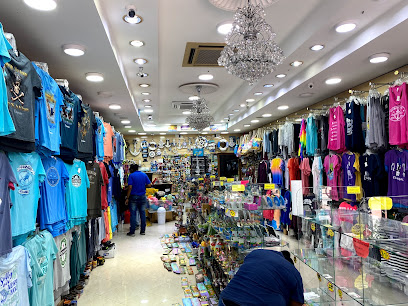
Supreme & Real Souvenir Liquor Shop
Discover unique liquors and local spirits at Supreme & Real Souvenir Liquor Shop in Punda, Willemstad, your ultimate destination for authentic Curaçao souvenirs.
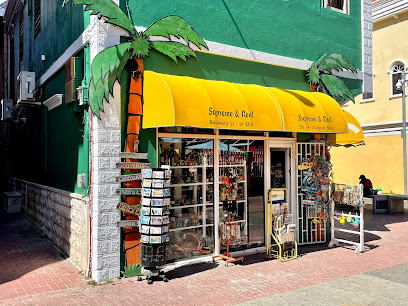
Sharkeez Souviner shop Curacao
Explore the vibrant Sharkeez Souvenir Shop in Curaçao for authentic local crafts, unique gifts, and a taste of island culture.
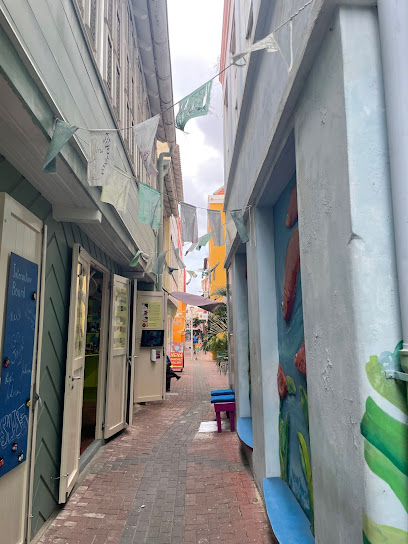
Essential bars & hidden hideouts
Plein Café Wilhelmina
Discover the flavors of Curaçao at Plein Café Wilhelmina, a vibrant diner in Willemstad offering a mix of local and international cuisine.
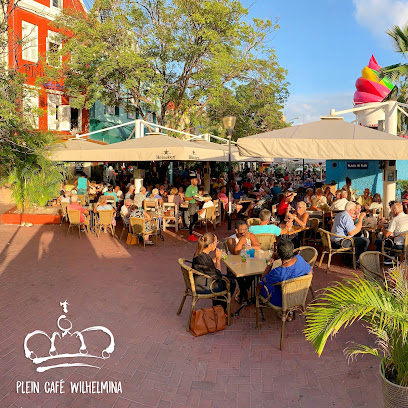
De Buren Curaçao
Discover the flavors of the Caribbean at De Buren Curaçao, a delightful restaurant in the heart of Willemstad offering local and international cuisine.
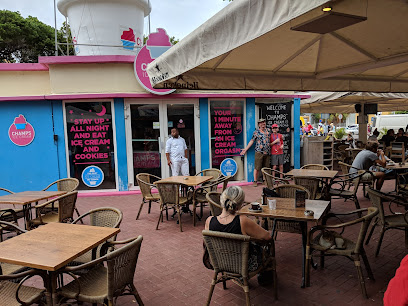
GORDO GRILL & BAR
Experience the vibrant flavors of Curaçao at Gordo Grill & Bar, located in the lively Punda district of Willemstad.
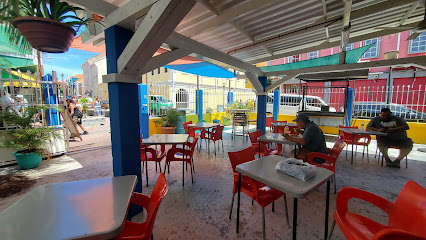
The World Best Mojito Bar
Discover the vibrant atmosphere and expertly crafted mojitos at The World Best Mojito Bar in Willemstad, Curaçao's ultimate cocktail destination.
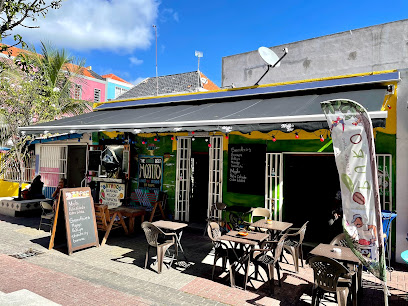
GAZE Bar & Lounge Curaçao
Discover the vibrant nightlife of Curaçao at GAZE Bar & Lounge, a lively gay bar offering cocktails, dancing, and live music in a welcoming atmosphere.
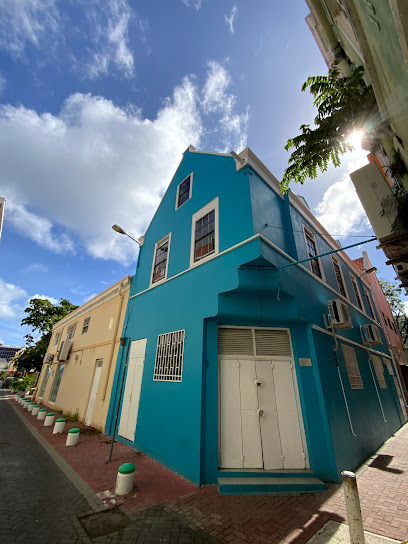
willemstad
Experience the vibrant nightlife of Willemstad, Curaçao, where colorful bars and local flavors create unforgettable moments.
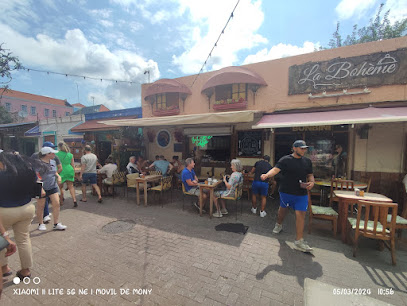
The tiki tok youssef A.k.A Youssef el khabbaz
Discover the lively ambiance at Youssef el Khabbaz, a top bar in Punda, Curaçao, where drinks and local music create unforgettable nights.
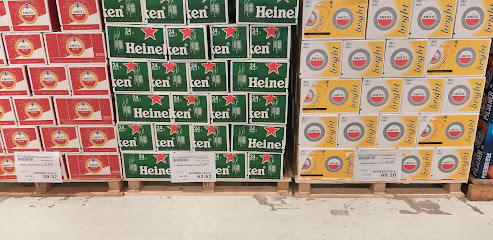
Curaçao
Discover the vibrant bar scene and stunning beaches of Curaçao, a Caribbean paradise where relaxation meets lively culture.
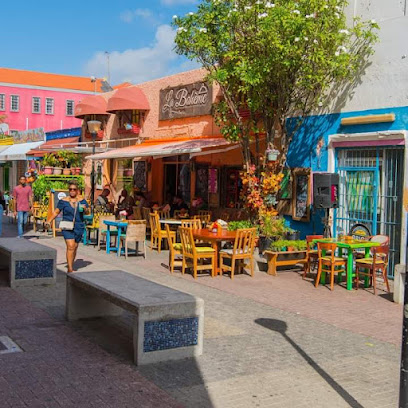
Delicias de Alnair
Experience the vibrant flavors of Curaçao at Delicias de Alnair, a top gastropub in Willemstad known for its innovative dishes and lively atmosphere.
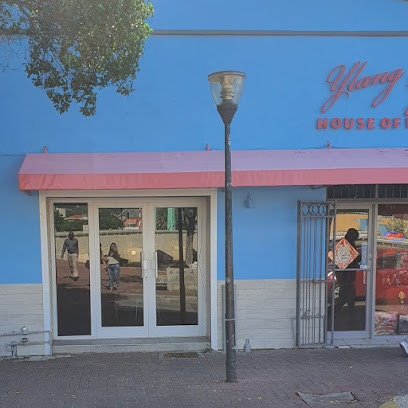
Joe Black
Experience the vibrant nightlife at Joe Black, a lively bar in Punda, Willemstad, offering delicious cocktails and a friendly ambiance.
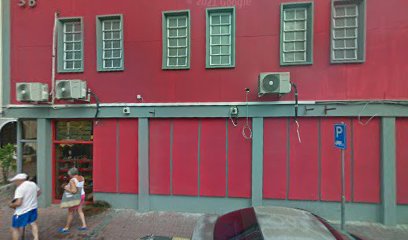
Local Phrases
-
- HelloBon dia
[bon dee-ah] - GoodbyeAyo
[ah-yo] - YesSi
[see] - NoNo
[no] - Please/You're welcomePor fabor
[por fa-bor] - Thank youDanki
[dan-kee] - Excuse me/SorryPardon
[par-don] - How are you?Kon ta bai?
[kon ta bye] - Fine. And you?Bon. I bo?
[bon. ee bo] - Do you speak English?Bo ta papia Ingles?
[bo ta pa-pee-ah een-gles] - I don't understandMi no ta kompronde
[mee no ta kom-prohn-de]
- HelloBon dia
-
- I'd like to see the menu, pleaseMi ke wak e menu, por fabor
[mee ke wak e meh-noo, por fa-bor] - I don't eat meatMi no kome karni
[mee no ko-meh kar-nee] - Cheers!Salud!
[sa-lood] - I would like to pay, pleaseMi ke paga, por fabor
[mee ke pah-gah, por fa-bor]
- I'd like to see the menu, pleaseMi ke wak e menu, por fabor
-
- Help!Yudami!
[yoo-dah-mee] - Go away!Bai for di mi!
[bye for dee mee] - Call the Police!Yama polis!
[ya-mah po-lees] - Call a doctor!Yama un dòkter!
[ya-mah oon dok-ter] - I'm lostMi a pèrdi mi mes
[mee ah pair-dee mee mes] - I'm illMi ta malu
[mee tah mah-loo]
- Help!Yudami!
-
- I'd like to buy...Mi ke kumpra...
[mee ke koom-prah] - I'm just lookingMi ta so mira
[mee ta soh mee-rah] - How much is it?Kuantu esei ta?
[kwan-too eh-say tah] - That's too expensiveEsaki ta muchu karo
[eh-sa-kee tah moo-choo kah-roh] - Can you lower the price?Bo por baha e preis?
[bo por bah-ha eh preis]
- I'd like to buy...Mi ke kumpra...
-
- What time is it?Ki ora ta?
[kee oh-rah tah] - It's one o'clockTa un ora
[tah oon oh-rah] - Half past (10)Mita (10)
[mee-tah] - MorningMardugá
[mar-doo-gah] - AfternoonAtardi
[ah-tar-dee] - EveningAnochi
[ah-no-chi] - YesterdayAyera
[ah-yeh-rah] - TodayAwe
[ah-weh] - TomorrowMañana
[mah-nyah-nah] - 1Un
[oon] - 2Dos
[dohs] - 3Tres
[trehs] - 4Kuater
[kwa-ter] - 5Sinku
[seen-koo] - 6Sèis
[says] - 7Siete
[syeh-teh] - 8Ocho
[oh-cho] - 9Nuebe
[nweh-beh] - 10Dies
[dees]
- What time is it?Ki ora ta?
-
- Where's a/the...?Unda ta e...?
[oon-dah tah eh] - What's the address?Kua ta e adres?
[kwa tah eh ah-dres] - Can you show me (on the map)?Bo por mustra mi (riba e mapa)?
[bo por moos-trah mee ree-bah eh mah-pah] - When's the next (bus)?Kua ora ta e siguiente (bus)?
[kwa oh-rah tah eh see-gwee-en-teh bus] - A ticket (to ....)Un tiket (pa ....)
[oon tee-ket pah]
- Where's a/the...?Unda ta e...?
History of Punda
-
Punda, the oldest neighborhood in Willemstad, was founded in 1634 by the Dutch West India Company as a trading post. Its name, meaning 'the point' in Papiamento, reflects its strategic coastal location. The neighborhood quickly became the center of trade for the island and the region, serving as a key hub in the Atlantic slave trade.
-
Punda is renowned for its colorful colonial architecture, a testament to the Dutch influence on the island. The iconic Handelskade, with its pastel-colored buildings lining the waterfront, showcases this architectural style. Many of these structures date back to the 18th and 19th centuries, reflecting the wealth generated from trade and the sugar industry during that period.
-
Throughout its history, Punda has been a melting pot of cultures, influenced by African, European, and Caribbean traditions. This cultural diversity is evident in the local cuisine, music, and festivals celebrated in the area. The neighborhood has played a vital role in preserving the island's unique heritage, including the Papiamento language, which blends elements from various cultures.
-
In 1701, a devastating fire swept through Punda, destroying a significant portion of the neighborhood. This catastrophic event led to a reconstruction effort that not only restored the buildings but also influenced the urban planning of Willemstad. The fire prompted stricter building codes and better preparedness for future disasters, shaping the architectural landscape of the area.
-
The 20th century brought significant economic changes to Punda as the island transitioned from a focus on sugar production to tourism and oil refining. This shift led to the revitalization of Punda as a tourist destination, with the establishment of shops, galleries, and restaurants that cater to visitors, while still maintaining its historical charm.
Punda Essentials
-
Punda is easily accessible from several neighborhoods in Willemstad. If you're coming from Otrobanda, you can cross the iconic Queen Emma Bridge, a floating bridge that connects the two areas. Buses and taxis are also available throughout Willemstad, providing convenient transportation to Punda. For those staying at resorts, shuttle services may also be provided.
-
Punda is a compact area that is best explored on foot. Most attractions are within walking distance, allowing you to soak in the vibrant architecture and local atmosphere. For longer distances, consider using local taxis or rideshare apps. Bicycles can be rented from various shops if you prefer a more active mode of transport. Public buses operate in Willemstad but may not be the most efficient option for short trips within Punda.
-
Punda is generally safe for tourists, but standard precautions should be taken. Avoid displaying valuables and be cautious in less crowded areas, especially after dark. Areas near the outskirts of Punda may have higher crime rates, so it's advisable to stick to well-lit and populated streets. Always remain vigilant and trust your instincts.
-
In case of an emergency, dial 911 for police, fire, or medical assistance. Nearest hospitals and clinics are located in Willemstad. It's wise to have travel insurance that covers medical emergencies. For minor health issues, local pharmacies can provide over-the-counter medications and essentials.
-
Fashion: Do wear light, breathable clothing suitable for the tropical climate. Don't wear beachwear outside of beach areas. Religion: Do respect local customs; avoid loud behavior near places of worship. Public Transport: Do be polite and respectful to fellow passengers. Don't engage in disruptive or loud conversations. Greetings: Do greet locals with a friendly 'Bon Dia' (Good Day). Don't be overly formal; a smile goes a long way. Eating & Drinking: Do try local dishes and drinks. Don't refuse food or drink offers from locals, as it's considered impolite.
-
To experience Punda like a local, visit the floating market for fresh produce and local crafts. Attend local festivals if you're visiting during one, as they often showcase traditional music and dance. Explore side streets to find hidden cafes and shops that may not be in guidebooks. Engage with locals; they are often eager to share their stories and recommendations.
-
In Punda, it’s important to respect local customs and traditions. When visiting churches, dress modestly and be sure to remove hats. Photography may be restricted in some areas; always ask for permission before taking pictures of people or private property.
-
Punda offers a delightful array of local cuisine. Be sure to try 'keshi yena', a traditional dish made with chicken and cheese, and 'funchi', a cornmeal dish. Dining at local eateries can provide a more authentic experience than larger restaurants. Don't forget to sample local drinks like 'blue curacao' and fresh fruit juices.
Nearby Cities to Punda
-
Things To Do in Julianadorp
-
Things To Do in Sint Michiel
-
Things To Do in Barber
-
Things To Do in Soto
-
Things To Do in Westpunt
-
Things To Do in Sabana Westpunt
-
Things To Do in San Nicolas
-
Things To Do in Savaneta
-
Things To Do in Santa Cruz
-
Things To Do in Pos Chiquito
-
Things To Do in Paradera
-
Things To Do in Sero Blanco
-
Things To Do in Tanki Leendert
-
Things To Do in Oranjestad
-
Things To Do in Noord



